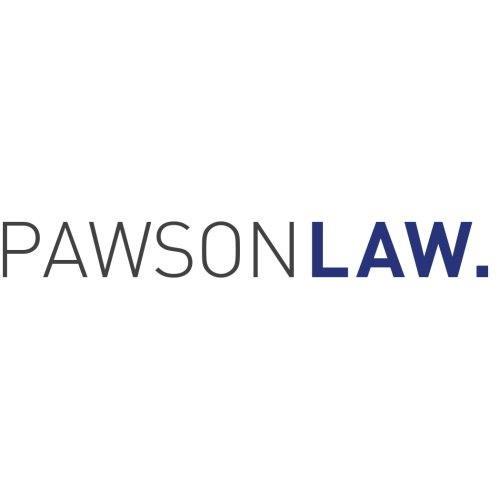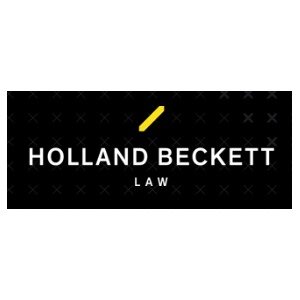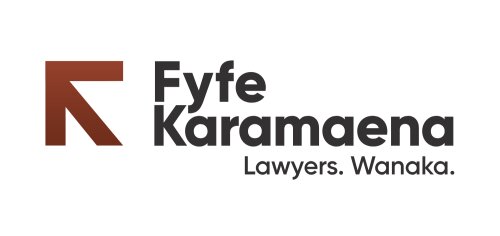Best Employment Rights Lawyers in New Zealand
Share your needs with us, get contacted by law firms.
Free. Takes 2 min.
Or refine your search by selecting a city:
List of the best lawyers in New Zealand
About Employment Rights Law in New Zealand
Employment rights in New Zealand are governed by a comprehensive legal framework designed to ensure a fair and safe working environment. Key legislation includes the Employment Relations Act 2000, which promotes good faith in employment relationships, and the Health and Safety at Work Act 2015, which aims to secure the health, safety, and welfare of workers. These laws aim to provide protection against unfair discrimination, ensure safe working conditions, and regulate work hours and remuneration. Employers and employees must abide by these regulations to foster respectful and equitable employment relationships.
Why You May Need a Lawyer
There are several situations where you might need legal assistance in employment matters. If you face issues such as unfair dismissal, workplace harassment or discrimination, or discrepancies in wages, consulting with a lawyer can be crucial. Additionally, if there are disputes regarding employment contracts or breaches of workplace health and safety standards, legal advice can help you understand your rights and the possible remedies. Sometimes, reaching a resolution may require formal legal action or negotiations that a professional can assist with effectively.
Local Laws Overview
The key aspects of employment laws in New Zealand include:
- Employment Contracts: All employees must have a written employment agreement.
- Minimum Wage: Employers must pay at least the minimum wage as set by law.
- Holidays and Leave: Employees are entitled to public holidays, annual leave, and sick leave.
- Discrimination and Harassment: The Human Rights Act 1993 protects employees from discriminatory practices in the workplace.
- Health and Safety: Employers are responsible for providing a safe workplace under the Health and Safety at Work Act 2015.
- Dismissal and Redundancy: Procedures must comply with fair process standards as outlined in the Employment Relations Act 2000.
Frequently Asked Questions
What is the minimum wage in New Zealand?
The minimum wage rate is reviewed annually, and as of April 2023, it was set at $22.70 per hour for adults.
Am I entitled to have a written employment contract?
Yes, it is a legal requirement in New Zealand for all employees to have a written employment agreement outlining the terms and conditions of their employment.
How can I address workplace discrimination or harassment?
You can start by discussing the issue internally with your employer or using the organization's grievance procedure. If unresolved, you can contact the Human Rights Commission for advice and support.
What are my annual leave entitlements?
Employees are entitled to at least four weeks of paid annual leave after 12 months of continuous employment with the same employer.
What steps should I take if I believe I have been unfairly dismissed?
Firstly, request a written explanation from your employer. You may then seek legal advice or assistance from the Employment Relations Authority to pursue an unjustified dismissal claim.
Who is responsible for ensuring workplace safety?
Employers are responsible for ensuring a safe workplace and must adhere to health and safety regulations, while employees must follow safety procedures and report hazards.
Can my employer change my contract terms without my consent?
No, any changes to your employment terms must be agreed upon by both parties. Employers must negotiate in good faith.
What should I do if I have concerns about my wage calculations?
Raise the issue with your employer and review your wage records. If unresolved, you can seek assistance from the Ministry of Business, Innovation, and Employment (MBIE).
How many sick leave days am I entitled to?
After six months of continuous employment, you are entitled to 10 days of paid sick leave each year.
Can I be made redundant while on parental leave?
Redundancy while on parental leave must be based on genuine business reasons and not the fact that you are on leave. Procedures must follow fair process standards.
Additional Resources
For further information and assistance, consider the following resources:
- Employment New Zealand: Provides comprehensive information about employment rights and obligations.
- Ministry of Business, Innovation, and Employment (MBIE): Offers support and dispute resolution services for employment-related issues.
- Human Rights Commission: Provides advice and support on discrimination and human rights issues in the workplace.
- Community Law Centres: Offer free legal advice and information on employment rights.
Next Steps
If you need legal assistance regarding employment rights in New Zealand, take the following steps:
- Document: Keep detailed records of any incidents, communication, and employment terms relevant to your situation.
- Consult: Approach a legal professional specializing in employment law or contact a community law center for advice.
- Engage: Work with your lawyer or advisor to understand your rights and explore the best course of action.
- Proceed: Depending on the legal advice received, you may proceed with mediation, negotiation, or formal legal action to resolve the issue.
Lawzana helps you find the best lawyers and law firms in New Zealand through a curated and pre-screened list of qualified legal professionals. Our platform offers rankings and detailed profiles of attorneys and law firms, allowing you to compare based on practice areas, including Employment Rights, experience, and client feedback.
Each profile includes a description of the firm's areas of practice, client reviews, team members and partners, year of establishment, spoken languages, office locations, contact information, social media presence, and any published articles or resources. Most firms on our platform speak English and are experienced in both local and international legal matters.
Get a quote from top-rated law firms in New Zealand — quickly, securely, and without unnecessary hassle.
Disclaimer:
The information provided on this page is for general informational purposes only and does not constitute legal advice. While we strive to ensure the accuracy and relevance of the content, legal information may change over time, and interpretations of the law can vary. You should always consult with a qualified legal professional for advice specific to your situation.
We disclaim all liability for actions taken or not taken based on the content of this page. If you believe any information is incorrect or outdated, please contact us, and we will review and update it where appropriate.
Browse employment rights law firms by city in New Zealand
Refine your search by selecting a city.

















